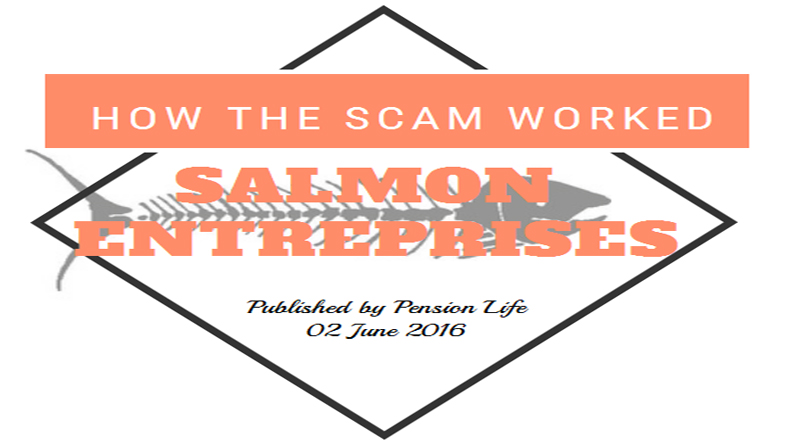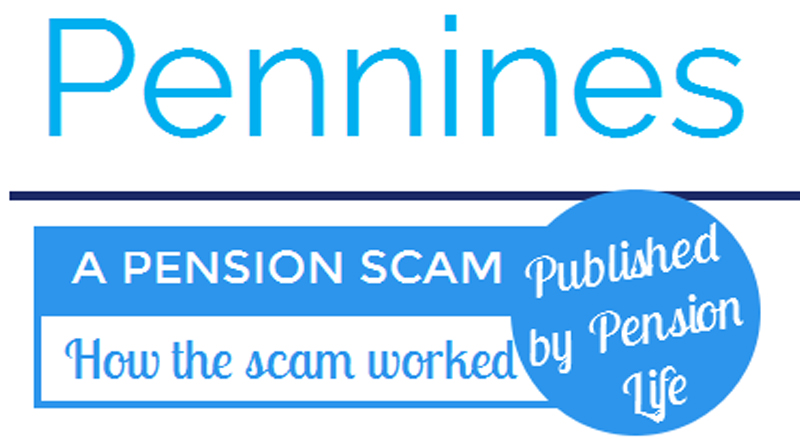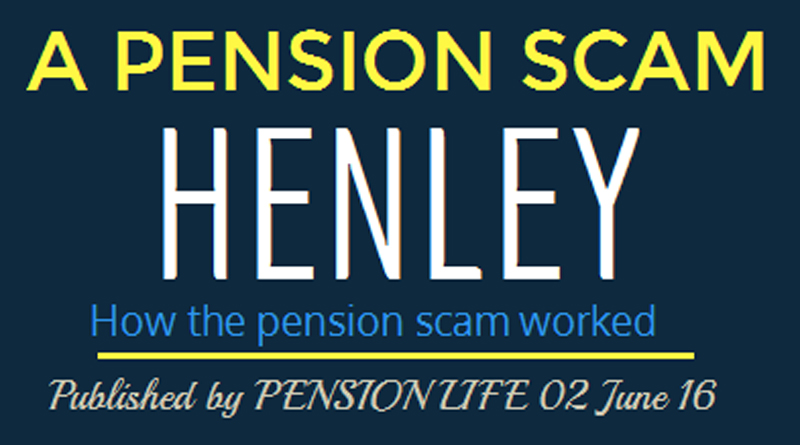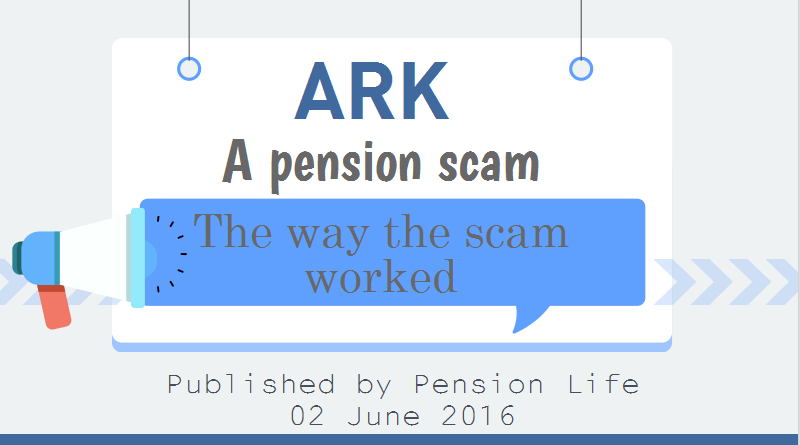Protected assessment: this is what thousands of pension liberation scam victims are receiving:
Pension Schemes Services
Fitz Roy House
Castle Meadow Road
Nottingham
NG2 1BD
PHONE 03000 564567
WEB www.gov.uk
Date 02 March 2016
Our Ref: UTR 99999 00000/XX/YYY – Ark
Dear Mr. J D
ARK PENSION RECIPROCATION SCHEMES
TAX LIABILITY – year ended 5 April 2012
During the year 2011/12 you were a member of The Tallton Place ARK Pension Scheme and according to the information I hold, an Unauthorised Payment (liberation/loan) was made either to you or in respect of you. I am currently liaising with the Trustees of the Pension Scheme and a list of Frequently Asked Questions (FAQs) have been prepared to help you understand the complex tax consequences and HMRC’s view. A copy of the FAQs is attached.
Following a change in legislation brought about by Schedule 39 Finance Act 2008 in relation to HRMC time limits for the issue of assessments and determinations, HMRC has issued an assessment in order to protect its position and ensure that any potential tax due for the year ended 5 April 2011 is not lost.
The assessment is based on the higher of the amount of MPVA loan you made or received from your pension scheme. Where you did not receive an MPVA we have based the assessment on the maximum amount of MPVA you coud have made (50% of the value you transferred rounded down to the nearest £2500) HMRC may consider other alternative arguments once their enquiries are complete.
Amount of unauthorised payment £ 57,500
Tax Due at 40% £23,000
Tax Due at 15%(surcharge) £8,625
Total Tax Due £31,625
HMRC will continue with its enquiries in order to establish the correct amount of tax due for the year ended 5 April 2011 and you should not, therefore, consider the assessment to signify the closure of HMRC’s enquiries.
If you have not already provided information to HMRC, please let me have the following information as soon as possible:
- A copy of the signed Maximisining Pension Value Arrangements (MPVA) Agreement relating to the sum received by you under Agreement relating to the sum received by you under the Agreement (the MPV Amount)
- A copy of your bank or building society statement showing the payment of the MPV Amount into your account
- Copies of all documents and correspondence held by you relating to the MPVA arrangements entered into by you.
- Details of how you were introduced to the MPVA arrangements
- Details of the persons you dealt with concerning the MPVA arrangements.
- An explanation as to why the unauthorised payment (the MPV Amount) was not declared in you 2012 Tax Return
You have the right to appeal against this assessment and, considering the circumstances, HMRC would not object to a postponement application of 100% of the tax due on the assessment until such time as our enquiries are finalised. Full details of how an appeal and postponement of tax can be made are enclosed.
I would also like to tell you that you may want to consider making an application for discharge of the unauthorised payments surcharge under Section 268 Finance Act 2004 if you think that you meet the ground set out in Section 268(3) Finance Act 2004. If you do want to make an application, this should be sent to me at the address shown above and you will need to set down the reasons why you meet the conditionset out in the legislation.
If you contact us, we can deal with you more quickly if you quote the reference number and provide a daytime telephone number. If you prefer you can email us at pension.compliance@hmrc.gsi.gov.uk. Please remember to include ARK in the subject line of your email.
A copy of this lette plus enclosures have been sent to your agent Angela Brooks.
Yours Sincerely
XXXXX XXXXXXXXXXXX
Compliance Officer
To find out what you can expect from us and what we expect from you go to www.gov.uk/hmrc/your-charter and have a look at ‘Your Charter’.
_________________________________________________________________________________________________________
Pension Schemes Services
Fitz Roy House
Castle Meadow Road
Nottingham
NG2 1BD
PHONE 03000 564567
WEB www.gov.uk
Angela Brooks ARK Class Action
24 Calle Cuatro Esquinas
Lanjaron 18420
Granada
Spain
Date 02 April 2016
Our Ref: UTR 99999 00000/XX/YYY – Ark
Dear Ms. Brooks
Mr. J.D
NOTICE OF ASSESSMENT
I enclose a copy of the notice of assessment that I have sent to your client today. If you have any questions, please phone me on 03000 564234
Yours Sincerely
XXXXX XXXXXXX
Compliance Officer
_________________________________________________________________________________________________________
NOTICE OF ASSESSMENT
Mr. J.D
23 Foggy Dew Rd
Gloustershire
XXX YYY
Pension Schemes Services
Fitz Roy House
Castle Meadow Road
Nottingham
NG2 1BD
PHONE 03000 564567
WEB www.gov.uk
Issuing Officers Name: XXXXXXXXXX XXXXXX
Reference: UTR 99999 00000/XX/YYY – Ark
Date: 02 April 2016
NOTICE OF ASSESSMENT FOR THE YEAR ENDED 05 April 2012
Amount charged by this assessment: £31, 999.00
I am sending this assessment to you because we have found that there is additional tax dur that was not previously shown on your tax return. It is now too late for us to amend your tax return so this assessment allows us to collect the additional tax. We have made this assessment under Section 29 of the Taxes Management Act 1970.
I enclose a copy of my calculation of the amount charged by this assessment. I have also included this amount on your Self Assessment statement, a copy of which is enclosed.
About your adviser
I have sent a copy of this notice to your adviser, Angela Brooks, Ark Class Action.
Paying what is due.
Please pay £34, 630.01 no later than 4 May 2015. This is the amount due for assessment. Please refer to your Self Assessment statement for details of the interest included in this amount, as well as details of any other items that you have not yet paid. Please also pay any other amounts that are due.
We have charged you late payment interest for the amount charged by this assessment. We will add more interest on a daily basis until you have paid all the tax due that is due, so we recommend that you pay straightaway.
If you do not pay all the tax that is due as a result of this assessment within 30 days of the date it should be paid, we will charge you late payment penalties. A late payment penalty is an additional amount of money that you will have to pay as well as the tax that is due. If your payment is:
- 30 days late, we will charge you an initial penalty – this will be an amount equal to 5% of the tax you owe at that date
- 6 months late, we will charge you a further penalty – this will be an amount to 5% of the tax that you owe at that date
- 12 months late, we will charge you a second further penalty – this will be an amount equal to 5% of the the tax that you owe at that date.
Interest we charge for paying tax late
We will charge you interest on any tax and/or penalties that you pay late. We will charge it from the date that the payment should have been made, until the date that it is paid. Any interest charges are shown your on your Self Assessment statement.
We will charge you interest from 31 January 2013 until the date it is paid. If you should have made Self Assessement payments on account by 31 January 2012 and 31 July 2012, we will charge you interest on what you should paid from those dates.
Changes to the Self Assessment tax that you are due to pay for one year, may affect the payments on account that you are due to make for later years.
How to pay
We recommend that you pay us electronically. You can find more details on out website. Go to www.hmrc.gov.uk/payinghmrc/index.htm
If you need to pay by post, please send a cheque to:
HM Revenue & Customs
Accounts Office Shipley
BRADFORD
BD98 1YY
Please make your checque payable to ‘HM Revenue & Customs’ followed by the reference ‘UTR99999 00000’.
If you think you may have problems paying, you can find help on out website. Go to www.hmrc.gov.uk/payinghmrc/problems/cantpay.htm or you can phone our payment helpline on 0300 200 3822
What to do if you disagree
If you disagree with the assessment, you can appeal. To do this, you need to write to us within 30 days of the date on this assessment, telling us why you think our desicion is wrong. We will then contact you to try to settle the matter. If we cannot come to an agreement, we will write to you and tell you why. You can then either:
- have the matter reviewed by an HMRC officer who has not previously been involved in the case
- ask an independent tribunal to decide the matter.
If you choose a review, you can still fo to the tribunal if you are not satisfied with the outcome.
If you appeal, you can ask for the payment of all or part of the tax in dispute to be postponed until the matter is resolved.
If you want to apply for a postponement, please tell us the amount of tax that you think you are being overcharged and the reasons why you think you should not have to pay this. We will continue to charge interest on any tax that we postpone. Once the dispute is settled, the interest will be payable if tax is found to be due.
You can find more information about your appeal and review rights in factsheet HMRC1 ‘HM Reveneue & Customs decisions – what to do if you disagree’. You can get this fact sheet from our website. Go to www.hmrc.gov.uk/factsheets/hmrc1.pdf or you can phone our orderline on 0300 200 3610.
























